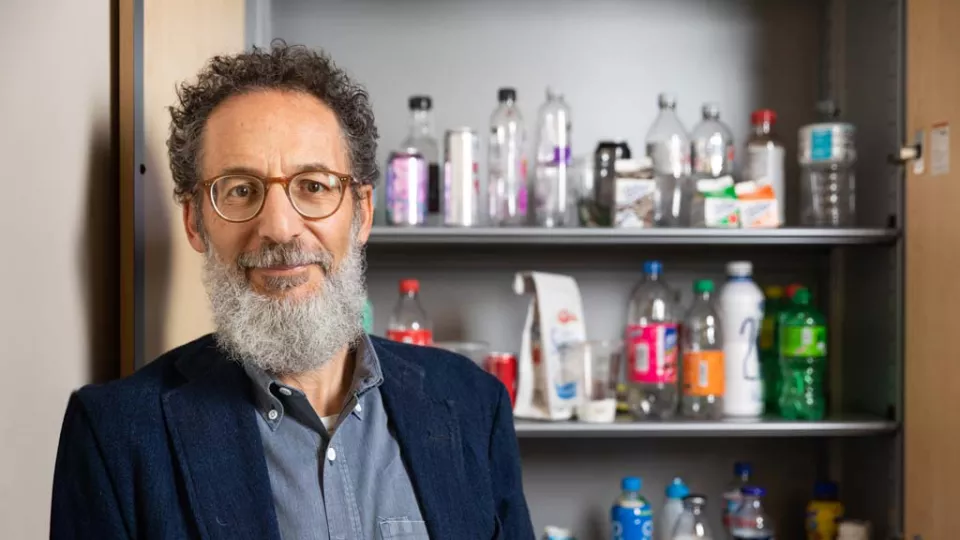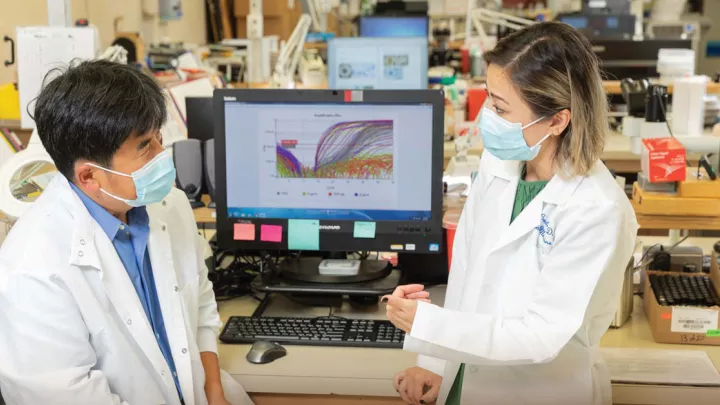
Children’s Hospital Los Angeles Awarded $24.5 Million to Establish a Center Addressing Chronic Health Disparities in Latino/a/x Children and Families
Los Angeles (October 19, 2021) — Obesity rates continue to rise in the United States, and with them, related health conditions like Type 2 diabetes, heart disease and fatty liver disease. These outcomes disproportionately affect the Latino/a/x community, which represents almost half the population of Southern California. Children’s Hospital Los Angeles has been awarded $24.5 million from the National Institute of Minority Health Disparities to establish a new center to address individual, familial, societal and environmental factors contributing to these disparities. The center will also work closely with community organizations to implement changes across the region to mitigate the risk of chronic disease in this population.
“Our patient population is one of the most diverse in the nation,” says Paul S. Viviano, President and CEO of Children’s Hospital Los Angeles. “We are proud to initiate an effort that will better serve the Latino/a/x community.”
“It is exciting to be leading this effort here at CHLA,” says Michael I. Goran, PhD, who is the Principal Investigator on the grant and will serve as Director of the new center. “This new center builds on the research I have done over the past 30 years and will address a critical public health and community need for Latinos in our region. I hope it solidifies for the community that we are addressing disparities in a serious way.”
Obesity and associated health concerns disproportionally affect the Latino/a/x community, which makes up 45% of the population across the 10 Counties of Southern California and constitute 10.8 million individuals. The research initiated by the new enter will address the many variables that contribute to this disparity.
As Professor of Pediatrics and Director of the Diabetes and Obesity Program at The Saban Research Institute of CHLA, Dr. Goran studies how nutrition affects children, even before birth and through early life. In particular, his research shows that excess dietary sugar can affect growth and development, contributing to increased risk of obesity and associated chronic diseases like diabetes, fatty liver disease and heart disease.
But beyond sugar, there are many other variables to consider. Obesity and its associated chronic disease are a result of many factors that link the individual and the family to environmental, societal and cultural influences which can often be difficult to disentangle.
“This is a huge effort across the region,” says Dr. Goran. “It’s bigger than any one institution, which is why we are partnering with investigators and stakeholders at USC, UC San Diego, San Diego State, Kaiser Permanente and the Sansum Diabetes Research Institute in Santa Barbara as well as numerous community organizations.” Indeed, the partnership is designed to involve leaders from academia, hospitals and community organizations.
The Center will support three research projects that are set to begin soon. The first of these is a study led by Dr. Goran to examine how early-life nutrition, environment and social factors affect disease risk in the first five years of life. The second and third projects will include family-based interventions at UC San Diego and Kaiser Permanente, both aimed at reducing obesity and chronic disease risk in Latino/a/x families. CHLA’s Juan Espinoza, MD, will lead the Methods and Data Sub-Core to support planning and analyses of the projects as well as streamlining of common methods across the projects to facilitate collaborate and data sharing. The center has also received enough funding to award eight new pilot projects throughout the region each year as well as establish a mentoring network to promote the career development of new researchers in this area of investigation.
The center’s co-Director will be Lourdes Baezconde-Garbanati, PhD, Professor in Population and Public Health, Associate Dean for Community Initiatives and Associate Director for Community Outreach and Engagement at the Norris Comprehensive Cancer Center at the Keck School of Medicine of USC.
“Our research will be focused in Southern California, a geographic and cultural region extending through California’s most populous counties,” says Dr. Baezconde-Garbanati. “The region is composed of the largest Latino/a/x populations in the State. Our investigators will be able to identify, develop and disseminate culturally effective interventions that will alleviate chronic health disparities in these families. Working with a cadre of community partners and promotores de salud, we will engage and involve our communities in decisions over their own health.”
Dr. Baezconde-Garbanati will join CHLA’s Michele Kipke, PhD, to lead the Center’s Community Engagement Core. Together, their work will serve to not only engage the community in the research, but also to use their research findings to benefit the Latino/a/x community.
About Children's Hospital Los Angeles
Founded in 1901, Children's Hospital Los Angeles is the highest-ranked children’s hospital in California and fifth in the nation on the prestigious U.S. News & World Report Honor Roll of Best Children’s Hospitals. U.S. News ranks Children’s Hospital Los Angeles in all 10 specialty categories. Clinical care at the hospital is led by physicians who are faculty members of the Keck School of Medicine of USC through an affiliation dating from 1932. The hospital also operates the largest pediatric residency training program at a freestanding children’s hospital in the Western United States. The Saban Research Institute of Children’s Hospital Los Angeles is home to all basic, translational, clinical and community research conducted at the hospital, allowing proven discoveries to quickly reach patients. Our mission: to create hope and build healthier futures. To learn more, follow us on Facebook, Instagram, LinkedIn, YouTube and Twitter, and visit our blog at CHLA.org/blog.


